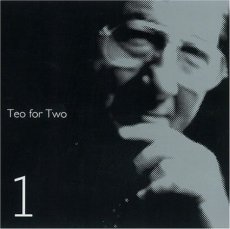
Daily Dose Of Jazz…
Teo Macero was born Attilio Joseph Macero on October 30, 1925 in Glen Falls, New York. After serving in the Navy he moved to New York City in 1948, attended the Julliard School of Music, studied composition and graduated from with Bachelor and Master degrees.
In 1953, Macero co-founded Charles Mingus’ Jazz Composers Workshop, and became a major contributor to the New York City avant-garde jazz scene. As a composer, Macero wrote in an atonal style as well as in third Stream, a synthesis of jazz and classical music. He performed live, and recorded several albums with Mingus and the other Workshop members over the next three years, including Jazzical Moods in 1954 and Jazz Composers Workshop the next year.
Macero found greater fame as a producer joining Columbia Records in 1957 producing hundreds of records while at the label, working with dozens of artists including Duke Ellington, Ella Fitzgerald, Johnny Mathis, Count Basie, Dave Brubeck, Tony Bennett, Dave Brubeck, Tony Bennett and Stan Getz, and was responsible for signing Mingus, Thelonious Monk and Charlie Byrd.
Over the course of his twenty-year tenure as a producer at Columbia he produced most of the Miles Davis catalogue including most notably Kind Of Blue and Bitches Brew along with Dave Brubeck’s Time Out, all three of which became three of the most influential jazz albums of all time. Beyond jazz, he produced a number of Broadway original cast recordings including A Chorus Line and Bye Bye Birdie as well as the soundtrack to the film The Graduate.
After his tenure at Columbia, Macero continued as a player and producer on other projects, working with Herbie Hancock, Michel Legrand, Wallace Roney, Shirley MacLaine, Vernon Reid, Robert Palmer and DJ Logic.
He recorded several albums as a leader and as a sideman with Mingus, contributed compositions to other albums, was included as an alternate soundtrack to the 1958 short experimental film Bridges-Go-Round. In the 1970s and 1980s, Macero again released a handful of his own albums, including Time Plus Seven, Impressions of Charles Mingus, and Acoustical Suspension, before founding his own label, Teorecords, in 1999. Subsequently, he released over a dozen albums of original compositions, and continued to produce reissues of Miles Davis and other artists for various record companies.
Teo Macero, saxophonist, composer and producer passed away on February 19, 2008.
More Posts: saxophone
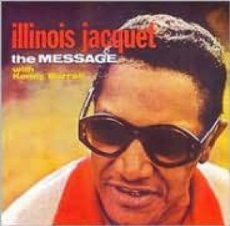
Daily Dose Of Jazz…
Jean-Baptiste Illinois Jacquet was born October 30, 1922 in Broussard, Louisiana to a Sioux mother and Creole father and bandleader. They moved to Houston, Texas when he was just an infant and grew up performing in his father’s band primarily on the alto saxophone.
At 15, Jacquet began playing with the Milton Larkin Orchestra, a Houston-area dance band. In 1939, he moved to Los Angeles, California where he met Nat King Cole and would sit in with the trio on occasion. In 1940, Cole introduced Jacquet to Lionel Hampton who hired him and asked him to switch to tenor.
In 1942, at age 19, Illinois soloed on the Hampton Orchestra’s recording of “Flying Home”, one of the very first times a honking tenor sax was heard on record. The song and solo became such a hit that every sax player who followed, notably Arnett Cobb, Dexter Gordon, Jimmy Forrest, Eddie “Lockjaw” Davis and Sonny Rollins, memorized them.
Quitting the Hampton band in 1943 and joined Cab Calloway’s Orchestra appearing with the band in Lena Horne’s movie Stormy Weather. Returning to California in 1944 he started a small band with his brother Russell and a young Charles Mingus.
It was at this time that Jacquet appeared in the Academy Award-nominated short film Jammin’ the Blues with Lester Young. He also appeared at the first Jazz at the Philharmonic concert and in 1946 he moved to New York City and joined Count Basie, replacing Young.
Through the 1960s and ‘70s he continued to perform mostly in Europe in small groups through the 1960s and 1970s, then led the Illinois Jacquet Big Band from 1981 until his death. He was the first jazz musician to be an artist-in-residence at Harvard University in 1983, played “C-Jam Blues” with President Clinton on the White House lawn during Clinton’s inaugural ball in 1993.
Illinois Jacquet, a skilled and melodic improviser, and a pioneer of the honking tenor saxophone that became the hallmark of early rock and roll, passed away of a heart attack in his home in Queens, New York on Thursday, July 22, 2004. He was 81 years of age.
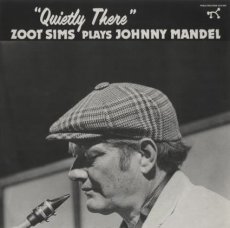
Daily Dose Of Jazz…
John Haley “Zoot” Sims was born on October 29, 1925 in Inglewood, California to vaudeville parents. Growing up in a performing family he learned to play both drums and clarinet at an early age along with steps taught him by his hoofer father.
Learning to play saxophone he followed in the footsteps of Lester Young, developing into an innovative saxophonist. Always fond of the higher register of the tenor sax, Sims was considered one of the strongest swingers in the field by his peers.
By the ‘50s and into the ‘60s Zoot had a long and successful partnership as co-leader of a quintet with tenor saxophonist Al Cohn, recording under the name of al & Zoot and a favorite at The Half Note club in New York. He added alto and soprano saxophones over the course of his career playing with renowned bands such as Benny Goodman, Artie Shaw, Stan Kenton and Buddy Rich. Zoot also play with Gerry Mulligan and later with Mulligan’s Concert Jazz Band.
During this period he recorded a series of albums for Norman Granz on his Pablo Records label and played on a few of Jack Kerouac’s recordings. However, it was early in his career that he acquired his nicknamed “Zoot” while working with the Kenny Baker band in California and was later appropriated for the sax-playing Muppet.
Zoot Sims, tenor and soprano saxophonist passed away in New York City on March 23, 1985.
More Posts: saxophone
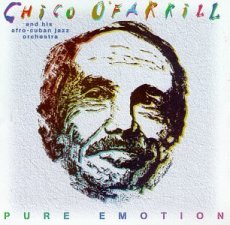
Daily Dose Of Jazz…
Arturo “Chico” O’Farrill was born on October 28, 1921 in Havana, Cuba of Irish/German heritage. Attending military school in Georgia he learned to play trumpet and was exposed to big band jazz.
Although he played trumpet early in his career, he became a sought-after composer and arranger, and was one of many leading the emergence of the Afro-Cuban jazz movement in the ‘50s dubbed Cubop.
Best known for his work in the Latin idiom, Chico also composed straight-ahead jazz pieces and even symphonic works. He composed works for Machito’s Afro-Cuban Suite with Charlie Parker and Benny Goodman’s Bebop Orchestra’s Undercurrent Blues and composed the Manteca Suite for Dizzy Gillespie and arranged for Stan Kenton and David Bowie, among others.
Over the course of his career he has recorded for Norman Granz’s label, with Todd Barkan at Fantasy, worked with the count Basie, Gato Barbieri, and Cal Tjader and has recorded and performed as a leader in small configurations, a bandleader and a sideman on more the two dozen albums. His music has been featured in the film Calle-54 and in the ‘90s he led a big band that took up residence at Birdland in New York.
Chico O’Farrill, Grammy nominee, passed away on June 27, 2001 in New York City and eventually his son Arturo took over the band.
More Posts: piano
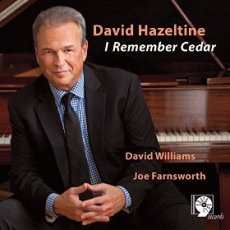
Daily Dose Of Jazz…
David Hazeltine was born October 27, 1958 in Milwaukee, Wisconsin and studied music with local pianist Will Green, He started playing gigs at age 13 but didn’t seriously consider a life in music until right before college.
Upon entering the jazz world David was encouraged by Chet Baker to move to New York City where he eventually became the house pianist for national acts at the former Jazz Gallery. His greatest influences have been Charlie Parker, Sonny Rollins, Bud Powell and Miles Davis and while he works within and across the constrains of bebop he is constantly seeking the beauty in harmony, melody, rhythm and never straying too deeply from his roots.
Hazeltine has played and recorded with the likes of Jon Hendricks, Louis Hayes, George Mraz, Joe Locke, Nat Reeves, Joe Farnsworth, Don Braden, Chris Potter, Peter Washington, Louis Hayes and One For All among numerous others.
A gifted arranger and composer, David has done an impressive amount of innovation in his arrangements of pop tunes, which appear on most of his CDs. He helped retool the Wisconsin Conservatory of Music’s jazz program, has recorded some two dozen albums as a leader and sideman and continues to be a major player on the New York and Japan jazz scene.
More Posts: piano


